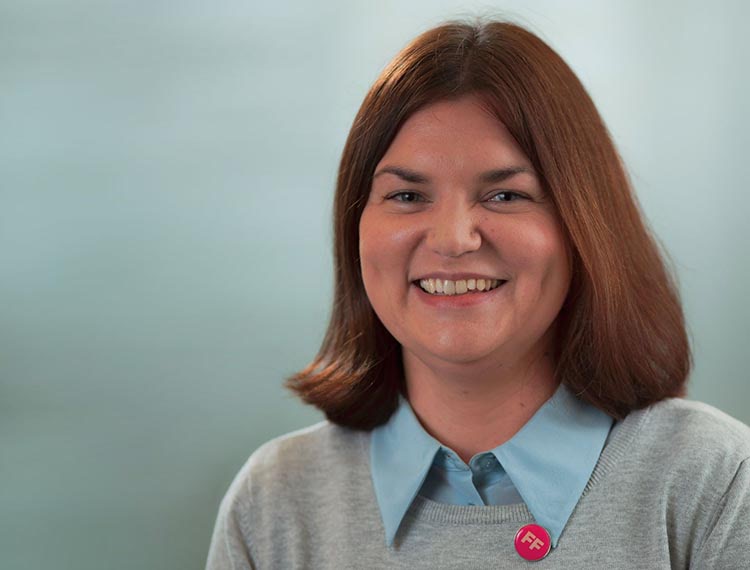The value of recent school leavers returning to the classroom as relatable role models

It’s a positive step that the benefits of bringing employer volunteers into the classroom are now much more widely recognised.
Gatsby benchmark number 5 highlights multiple encounters with employers and employees as one of the eight core measures for good careers provision in schools, and bringing back alumni volunteers to share their career experience is an integral part of any good school or college careers curriculum.
Yet in meeting such guidance, it is easy to presume all alumni volunteers must be well established in their careers to offer useful support.
The benefits of bringing younger volunteers, and specifically younger alumni, back to the classroom can be easily overlooked.
The effect of near peer role models
Recent research into the effect of near peer role models suggests that volunteers who are closer to students in terms of age can help with building crucial life skills such as resilience. Future First staff often see this in practice.
We recently facilitated a world of work day for year nine students at Witchford Village College in Cambridgeshire. Amongst former student volunteers of all ages working with students on the day was an alumnus who left as recently as 2016.
Alumni Programme Officer Natalie Grindey, who facilitated the event, said, “…he was a great role model for the students. He talked to them about the fact he only started trying in year ten and because of that found leaving school hard, so wished he’d started earlier.”
Such a valid message has much more weight for current students when delivered by someone not too distant from them in age or life experience.
Career path to focus on
But it’s not just in sharing key employability skills like resilience that younger alumni can be beneficial. Pakefield High School near Lowestoft, for example, invited two recent school leavers to speak to year eight students as part of their preparation for choosing GCSE courses.
Pakefield’s careers advisor said that following the event: “I have had feedback from many who have expressed they now have a clear career path to focus on as they choose their GCSE options”.
The power of younger role models
Research by the Behavioural Insights Team also suggests the power of younger role models in giving current post-16 students knowledge and information on university education.
Future First’s work with the National Collaborative Outreach Programme focuses specifically on building alumni communities to support greater participation in Higher Education (HE) in areas where it is currently lower than expected.
This enables current students to access role models with a very recent understanding of the challenges of progressing to HE, and current undergraduates are especially keen to support students at their old school follow in their footsteps.
A keen appetite for volunteering
Future First’s own statistics suggest there is a keen appetite for volunteering amongst younger alumni. In 2017-18, 44% of active alumni volunteers were aged 16-25.
These young people see the benefits of getting involved in supporting their old schools for themselves as well as for current school and college students.
Participating in workshops and class discussion, for example, can give volunteers with little work experience more confidence in public speaking and an opportunity to reflect on their own skills.
Some schools and colleges even hold events where younger alumni can network. East Norfolk Sixth Form College in Gorleston-on-Sea, Norfolk held an alumni network evening where recent leavers could meet more experienced alumni, enabling them to access networks to support their own future careers.
Bringing back a mix of volunteers is key
It seems bringing back a mix of volunteers is key to offering opportunities for all alumni to offer their support and for current students to have a rich and varied experience.
Adam Killeya, Head of Careers for Key Stage 5 at Saltash.net Community School in Cornwall recently ran two Sixth Form alumni panels at his school on ‘thinking about careers’ and ‘surviving the real world’.
He explains “…in both cases the real life experience and advice that the alumni have been able to bring has made for a much livelier interesting session than we can otherwise do.
It’s been particularly great to get a mix of recent leavers who students can closely identify with, and alumni with a rich vein of experience.”
So inviting both more experienced alumni and recent leavers has definite benefits.
It’s worth reflecting though that you don’t always need lots of life or career experience to give back and we shouldn’t discount the support recent school leavers, undergraduate students and early career alumni can offer.
Beth Goddard, Director of Programmes, Future First











Responses